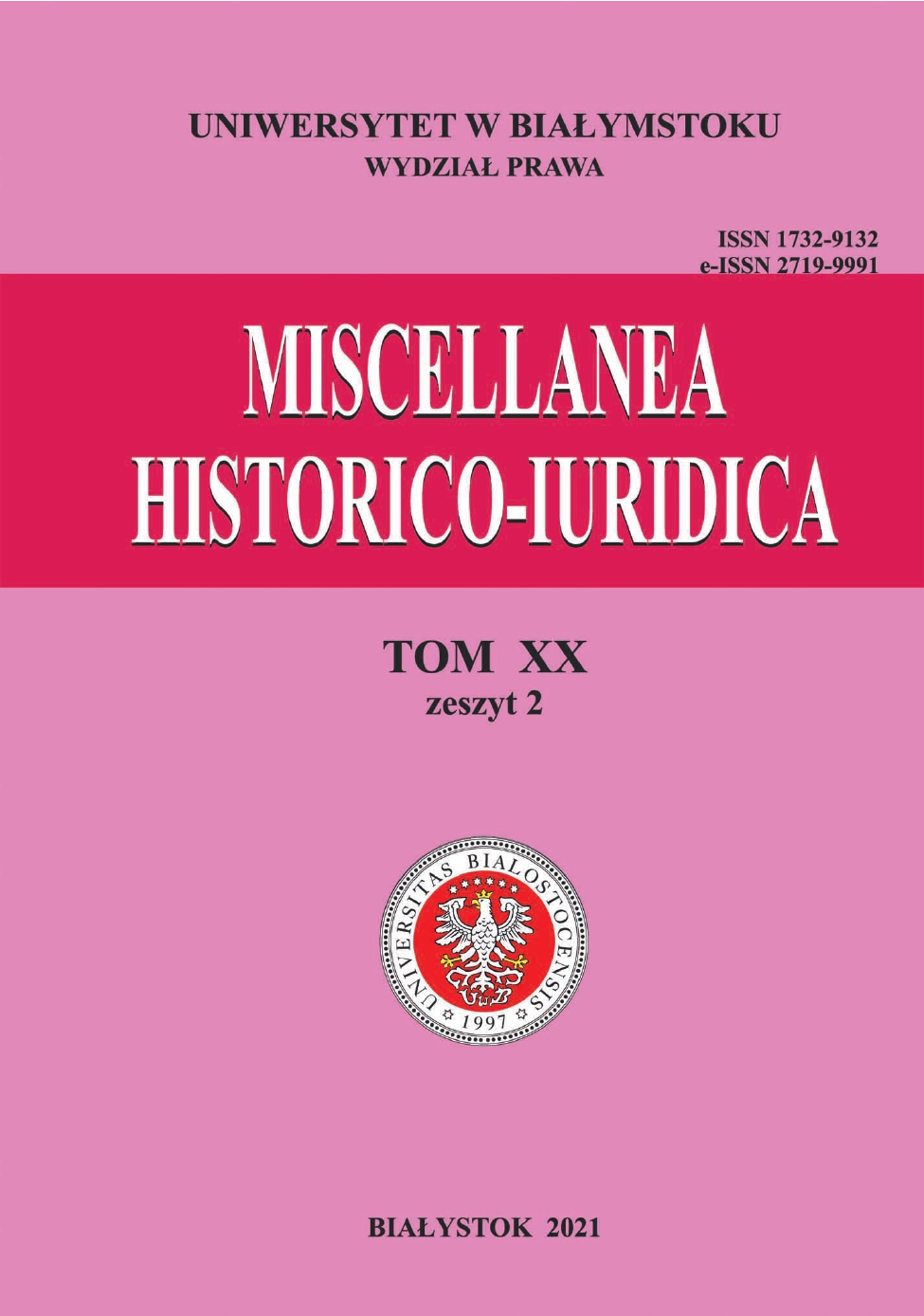From the Constitutionalization of the Principle of Legality nulla poene, nullum crimen sine lege Principle within the Weimar Constitution to the Reversal to a Principle of nullum crimen sine poena by the Nazi Regime
Keywords:
nulla poena sine lege, nullum crimen sine lege, RStGB, WRV, Reichstagsbrandverordnung, Reichsgericht, ReichstagsbrandprozessAbstract
The principle of Legality (nullum crimen, nulla poena sine lege) is the most fundamental principle of German criminal code since it was codified in the Bavarian Criminal Code 1813 for the first time. With the Foundation of the German Empire in 1871 it became an integral part of the new German Penal Code (Reichsstrafgesetzbuch). It was constitutionalized in 1919 as a fundamental right with Art. 116 of the Weimar Constitution. It was unchallenged till the Nazi regime came to power. Not within the Empowerment Act but with other legal measures resulting from the burning of the Parliament (”Reichstagsbrand”) on 28 February 1933 till 1935 on, the Nazi regime changed the principle step by step from nullum crimen, nulla poena sine lege to nullum crimen sine poena. They made Analogy in disfavor of the accused person possible and they stated criminal offences with retroactivity. Unfortunately, the Supreme Court of Justice (Reichsgericht) accepted the new provisions and used it as a basis for its sentences. After WW II the allies nullified the Nazi provisions. With Art. 103 § 2 of the new (West-)German constitution from 1949 nulla poena sine lege has been constitutionalized again. The Paper deals with that development with a special focus on the role of the Reichsgericht as the highest body of judges, who were trained in the times before the Nazis came to power.
References
Bahar A., Der Reichstagsbrandprozess, [in:] Lexikon der Politischen Strafprozesse, (Hrsg.) K. Groenewold, A. Ignor, A. Koch, https://www.lexikon-der-politischen-strafprozesse.de/glossar/reichstagsbrand-prozess-1933.
Deiseroth D., Der Reichstagsbrand-Prozess – ein rechtsstaatliches Verfahren?, „Kritische Justiz” 2009, vol. 42, no. 3.
Goldschmidt J., Die Rechtsgrundlagen der deutschen Strafgewalt gegen Auslander im besetzten Feindesgebiet, „Zeitschrift fur die gesamte Strafrechtswissenschaft” 1916, no. 37.
Heger M., Die Mauerschutzenprozesse – Ein Ausdruck von Siegerjustiz?, „Deutsch-Georgische Strafrechtszeitschrift” 2021, no. 3.
Naucke W., Deutsches Kolonialstrafrecht 1886–1918, „Rechtshistorisches Journal” 1988, no. 7.
Paiusco S., Nullum Crimen Sine Lege, the European Convention on Human Rights and the Foreseeability of the Law, Baden-Baden 2021.
Downloads
Published
Issue
Section
License
Copyright (c) 2021 Uniwersytet w Białymstoku (entire issue as a whole); Martin Heger (article)

This work is licensed under a Creative Commons Attribution-ShareAlike 4.0 International License.







